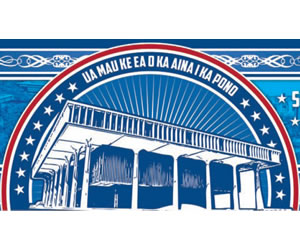MidWeek Voters’ Guide to Non-Incumbent Candidates

Could this be a watershed year for elections? If the sense of restlessness and discontent with entrenched politicians is any indication, as expressed by respondents to a recent MidWeek candidates survey, there could be some surprises.
The voices of empowerment are coming from non-incumbents who are placing themselves on the ballot to give voters a choice in the upcoming election. True, their noble commitment to public service still prevails. But witnessing the community’s hard times marked by joblessness, homelessness and hopelessness, Oahu’s non-incumbent and first-time candidates are on ballots to make a statement for change.
Incumbents – current office-holders – should not take their challengers lightly. Not this year.
With the impact of redistricting and the influence of electronic campaigning, particularly social media, nothing’s a given any more. Considering the overwhelming advantages an incumbent has, can merely the audacity of hope be enough of a campaign strategy?
To find out, MidWeek takes a look at the non-incumbents – or underdogs, if you will – running for the legislature from Oahu. This is Oahu only, based on communications with and data on non-incumbent candidates for the State Senate and House of Representatives.
Our Voters’ Guide profiles 56 non-incumbent candidates, who responded to an online questionnaire. It is presented as a public service based on MidWeek‘s view that name recognition decides too many races and campaign money tends to run uphill.
Here’s the Oahu legislative race landscape, by our calculations.
* 52 total districts/seats (17 Senate, 35 House).
* 48 incumbents, 74 non-incumbents
* six open seats (no incumbents)
* 10 former legislators attempting comeback
* Age range: 24-80
* Gender: 37 males, 21 females
* Education: High school to advanced degree graduates
* Party: 35 Republicans, 35 Democrats, one Green, one Nonpartisan
* Curiously, 10 candidates declined the opportunity to directly address MidWeek‘s half-million readers, including the lone Green and Nonaffiliated candidates.
Traditionally and historically, incumbents have decided advantages over challengers in elections. The non-incumbent often has lower name recognition, meager campaign resources, and less experience in running for public office.
But could this be the year in which the incumbency factor leads to the downfall of office-holders? Anti-incumbency backlash occurs when there is a perception of a politician’s poor performance or abuse of power.
Kimberly Case, House District 24 (Moiliili-Makiki-Tantalus) candidate, says, “After watching the infighting in the Legislature the last two years … it is time for all incumbents to be replaced with hard-working go-getters who put the people’s needs ahead of their own egos.”
Matt LoPresti, running in House District 41 (Ewa Beach-West Loch Estates), laments, “Last session there were many bills introduced to dismantle environmental review and community input; these bills were proposed with the false claim that it would help to create jobs. When I learned that my opponent for the primary was one of the lawmakers who backed gutting these protections, I was instantly motivated to work against her re-election.”
Major issues raised by non-incumbents in our survey are quality of life, government reform, economy and education.
Quality of life addresses their concerns about homelessness, elderly care/services, cost of living, public safety, health care, infrastructure, transportation and the environment.
Government reform, not surprisingly, is a loud hue and cry on present decision-making processes, taxing policies, budget deficits, accountability/transparency, and term limits.
Given the edge most incumbents have, what are the best tactics for success?
MidWeek political columnist-analyst Dan Boylan answers: “It’s always the same ball game. You need to walk-and-wave. Some say you have to walk a district three times in the course of the campaign. If you’ve got money to do a mailer, send them out early to reach the absentee ballot voters, then space them out during the campaign.
“But you’ve got to walk-and-wave. It’s stupid, looks stupid, tells the voters absolutely nothing about your stand on issues, but it demonstrates that you really want the job!”
There it is in a nutshell. Primary 2012 is imminent; so do your homework. And if there is a trace of anti-incumbency fever out there, use our Voters’ Guide to Non-Incumbents to make an informed choice.
But vote!
A final note: Candidate questionnaires have been lightly edited, mostly for spelling, but it was our goal to let the voice of each candidate be authentic.
ELECTION DATES AND VOTER DEADLINES
* Primary absentee application by: Aug. 4
* Primary Election: Aug. 11
* General election registration deadline: Oct. 8
* General absentee application by: Oct. 30
* General election: Nov. 6
* For more information, go to Hawaii.gov/elections.






